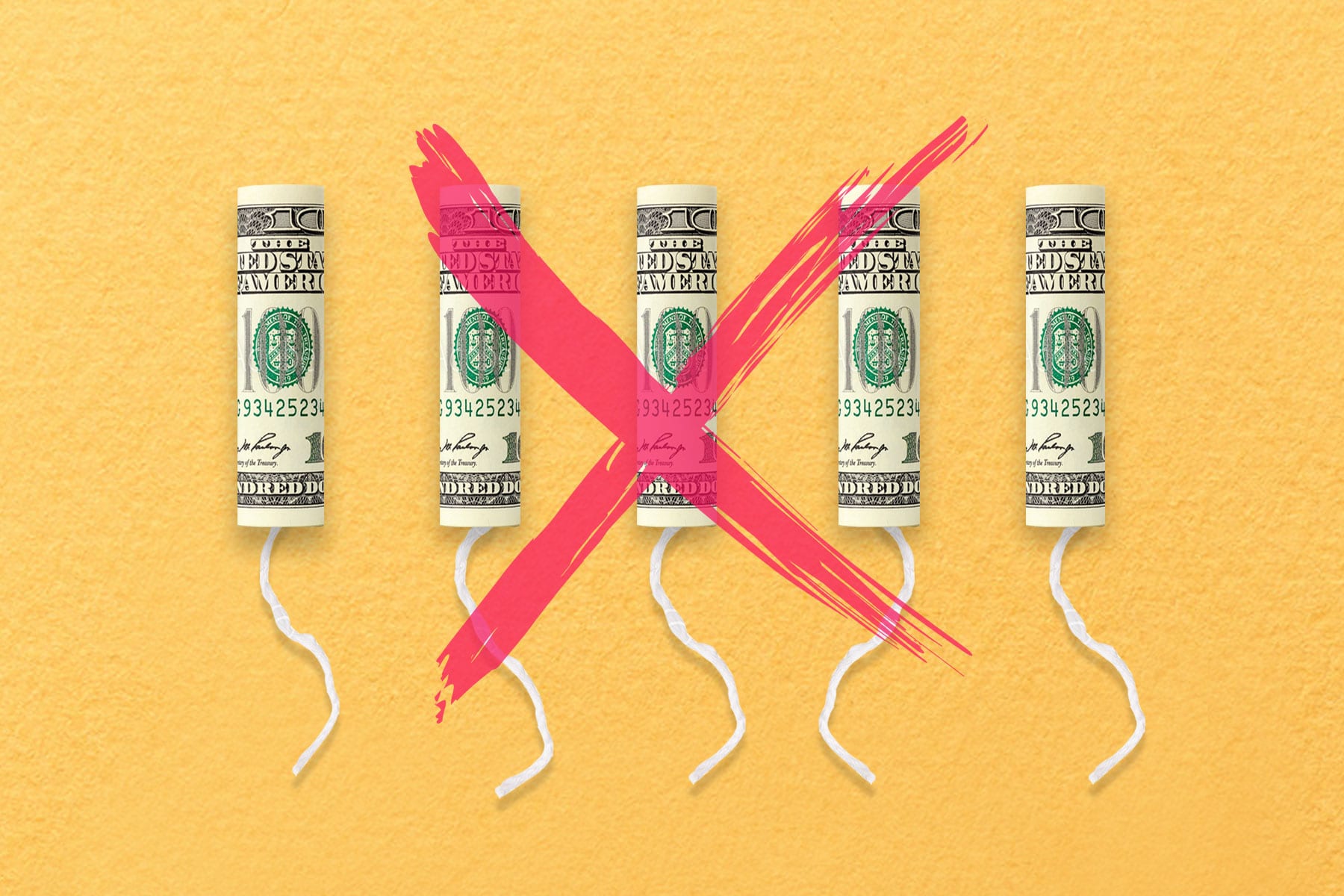A box of tampons or pads will be more affordable in Louisiana and Vermont starting Thursday, as laws exempting menstrual products from those states’ sales taxes goes into effect.
The states are the latest to join a nationwide movement to ban the so-called tampon tax. Advocates are grateful that efforts by states have gradually picked up steam in recent years, but they also want legislatures to take faster action in light of the ongoing effects of the pandemic.
The Louisiana law will eliminate the state sales tax from menstrual products and diapers. It’s a similar story in Vermont, where diapers are already exempt, but now menstrual products will be too.
Jennifer Weiss-Wolf is a co-founder of Period Equity, a nonprofit that advocates for menstrual products to be tax-exempt. She noted in roughly six years of work to remove the tampon tax, at least 12 states have taken formal action (On Thursday, Maine’s governor signed a budget into law that will eliminate the state’s tampon tax later this year — others already had tax codes that exempted menstrual products.) Lawmakers in at least 20 states introduced legislation this year. But at least 28 states still have the menstrual-related taxes in the books.
“The fact that there are still that many states to go, and that many ‘not success’ stories for the two successes we saw this session, is obviously a signal that there’s so much work to do,” she said.
Andrea Elizondo is one of the co-founders and lead organizers for the Texas Menstrual Equity Coalition, a group that advocated this year for an ultimately unsuccessful bill to eliminate the tampon tax in Texas. She is also the advocacy and outreach operations director for Menstrual Flux, a small nonprofit that sends menstrual kits to anyone in need in the United States.
Elizondo said she was disappointed that the bill in Texas effectively died because time ran out this session, but she was proud that it advanced out of a legislative committee — a level of action that indicates it may move further along in the future. Elizondo thinks the bill competed for attention in a legislative session jam-packed with fights over a range of issues, including the budget and recovery from the pandemic. She also noted that the advocates she works with are not paid, and that they did the best that they could.
“Going into the next session, I think we have a better chance,” she said. “… It’s just a constant reminder that advocacy is a marathon, and it’s a very long-term commitment.”
Weiss-Wolf, also vice president at the Brennan Center for Justice at NYU Law, said the pandemic is even more reason to remove the tampon tax everywhere; research shows people are struggling to purchase menstrual products. Elizondo agreed, noting that the effects of poverty on accessing menstrual products existed way before the pandemic and have only accelerated. She remembers growing up in a single-parent household and having to ration menstrual products between what she and her mother could afford and accessing some limited supplies at school. She tried to use products from home only on the weekends and after school.
“There’s so much to teenage life that’s already stressful and uncomfortable as you go through puberty, that being aware that you lack resources is another additional element and stressor in your life,” she said.
Weiss-Wolf said that in some state legislatures there is an argument over reducing tax revenues amid budget constraints. This doesn’t fly with her.
“We should never accept that the status quo must fall on the backs of women and people who menstruate to be the bridge there,” she said. “An inequitable and discriminatory tax like the tampon tax can’t be the answer to questions or concerns they have about budget shortfalls.”
Period Equity is part of a lawsuit filed last year that challenged the constitutionality of Michigan’s 6 percent sales tax on menstrual products. The lawsuit is pending, but Michigan Gov. Gretchen Whitmer in February told Michigan Advance that her latest budget proposal would include ending the state sales tax on menstrual products. She had previously expressed support for eliminating the tax.
“As we work together to lead a long-lasting economic recovery for our state, this is a fundamental step we can take to create a more equitable economy for all Michiganders,” she told the nonprofit news site.
Weiss-Wolf said legal action in other states is a possibility in the future. She noted that the Michigan lawsuit has drawn the attention of other lawyers, law students and legal clinics around the country. “Nothing’s off the table. In fact, it’s all even more on the table,” she said.
Weiss-Wolf said the tampon tax is “the tip of the iceberg” in a multifaceted strategy aimed at ensuring menstrual access, dignity and equity for all people. That includes making menstrual products more accessible to people in schools and other facilities. “It’s a much broader agenda than just that legislation,” she said of the tampon tax. “So all of it is fuel in the tank for everything still to come.”





